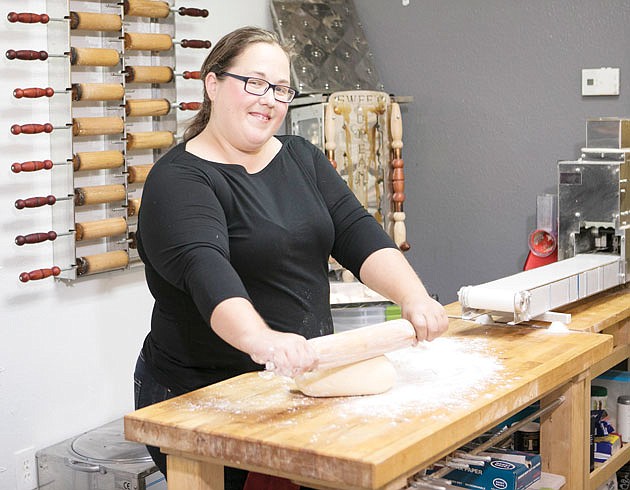- February 19, 2026
-
-
Loading

Loading

The shared commercial kitchen Christine Nordstrom runs, Rise, provides entrepreneurs more than ovens and sinks.